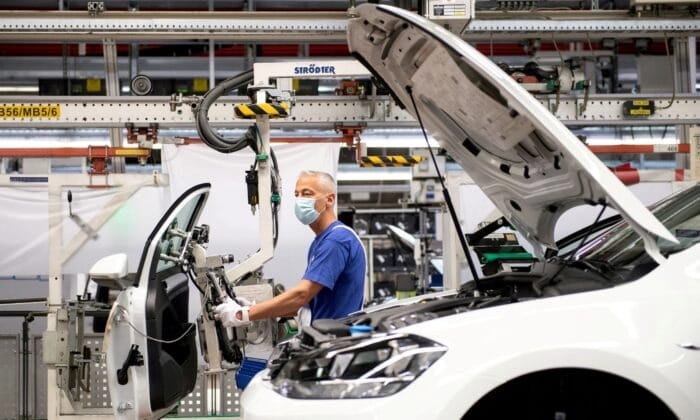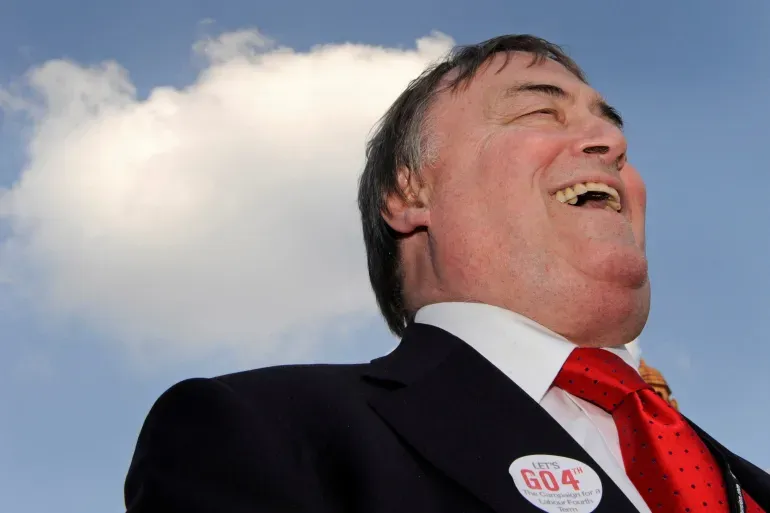Volkswagen Eliminates Job Promises at Six German Auto Facilities
Cole Smead, CEO of Smead Capital Management, a Volkswagen shareholder, expressed skepticism about the company’s ability to sustain its production levels given the low returns.

Volkswagen has informed the IG Metall trade union that it will cancel several labor agreements, including a longstanding pledge not to lay off workers at six German plants before 2029. This decision comes amid warnings from Volkswagen's management about the potential closure of plants in Germany for the first time since the company’s founding in 1937.
The company is making these changes as part of a broader cost-cutting initiative to stay competitive in the electric vehicle market, which has been increasingly dominated by cheaper Asian competitors, particularly from China. Volkswagen CEO Oliver Blume emphasized the necessity of reducing costs to maintain competitiveness.
Volkswagen, which also owns Audi, aims to cut more than 10 billion euros ($11 billion) in expenses by 2026. IG Metall's response to this announcement was immediate, stating that the news came “seconds ago.” Negotiations on the matter were scheduled to begin in October, with potential strikes anticipated before the year ends.
Daniela Cavallo, head of Volkswagen’s works council, has vowed to fiercely oppose any redundancies and plant closures, attributing the issues to ineffective upper management. She criticized the company’s leadership and highlighted the need for competitive products and entry-level electric car models.
Earlier this year, Volkswagen finance chief Arno Antlitz warned that the company needed to prepare for intense competition from Chinese manufacturers who offer lower-priced electric vehicles.
The move to cancel labor agreements also represents a setback for German Chancellor Olaf Scholz, whose approval ratings have declined amid economic challenges and dissatisfaction with his government’s immigration policies. Scholz has discussed the issue with Volkswagen management and workers but emphasized that it is ultimately a matter for the company and its employees.
IG Metall had previously proposed a shift to a four-day workweek as an alternative to plant closures, a strategy used successfully in the 1990s. However, Volkswagen is now dealing with not only economic uncertainty and weak growth in Germany but also rising energy costs and aggressive competition from Chinese automakers like BYD, Chery, Leapmotor, and SAIC.
The European Union is investigating whether Chinese automakers are unfairly benefiting from state subsidies and dumping excess production in Europe, allegations that China denies. Chinese industry representatives have indicated that they will continue to expand in Europe despite the probe.
If the EU introduces import tariffs on Chinese-made electric vehicles, similar to recent measures taken by Canada, Chinese companies might establish manufacturing plants in Europe to circumvent the tariffs.
Volkswagen is also facing issues in the United States, where the Highway Traffic Safety Administration reported that the company will recall 98,806 electric SUVs due to concerns about inadequate protection against water ingress.
Cole Smead, CEO of Smead Capital Management, a Volkswagen shareholder, expressed skepticism about the company’s ability to sustain its production levels given the low returns.
DZ Bank analyst Michael Punzet expects Volkswagen to lower its annual profit margin target further when it releases its third-quarter results, having already reduced it to 6.5–7.0 percent in July due to the potential closure of an Audi factory in Brussels.
Volkswagen has never closed a factory in Germany and last shut a plant in Westmoreland, Pennsylvania, in 1988.





